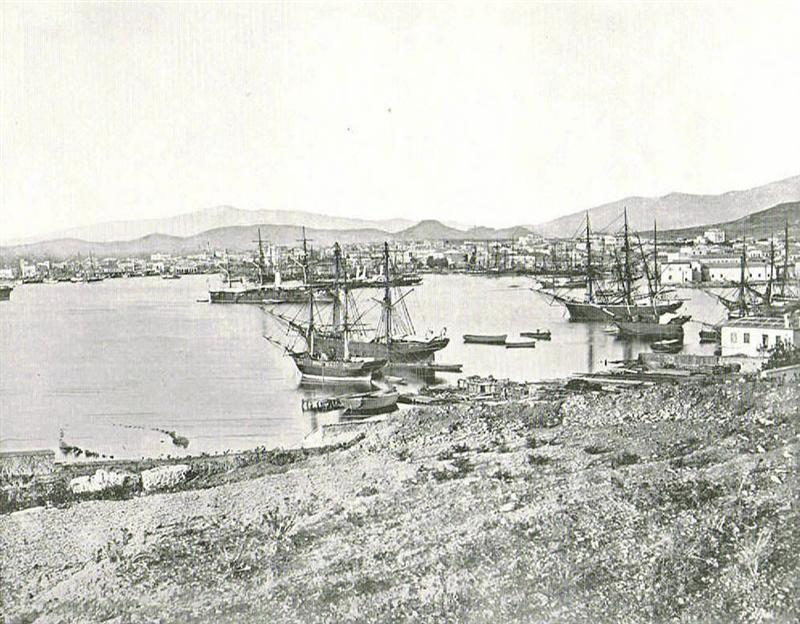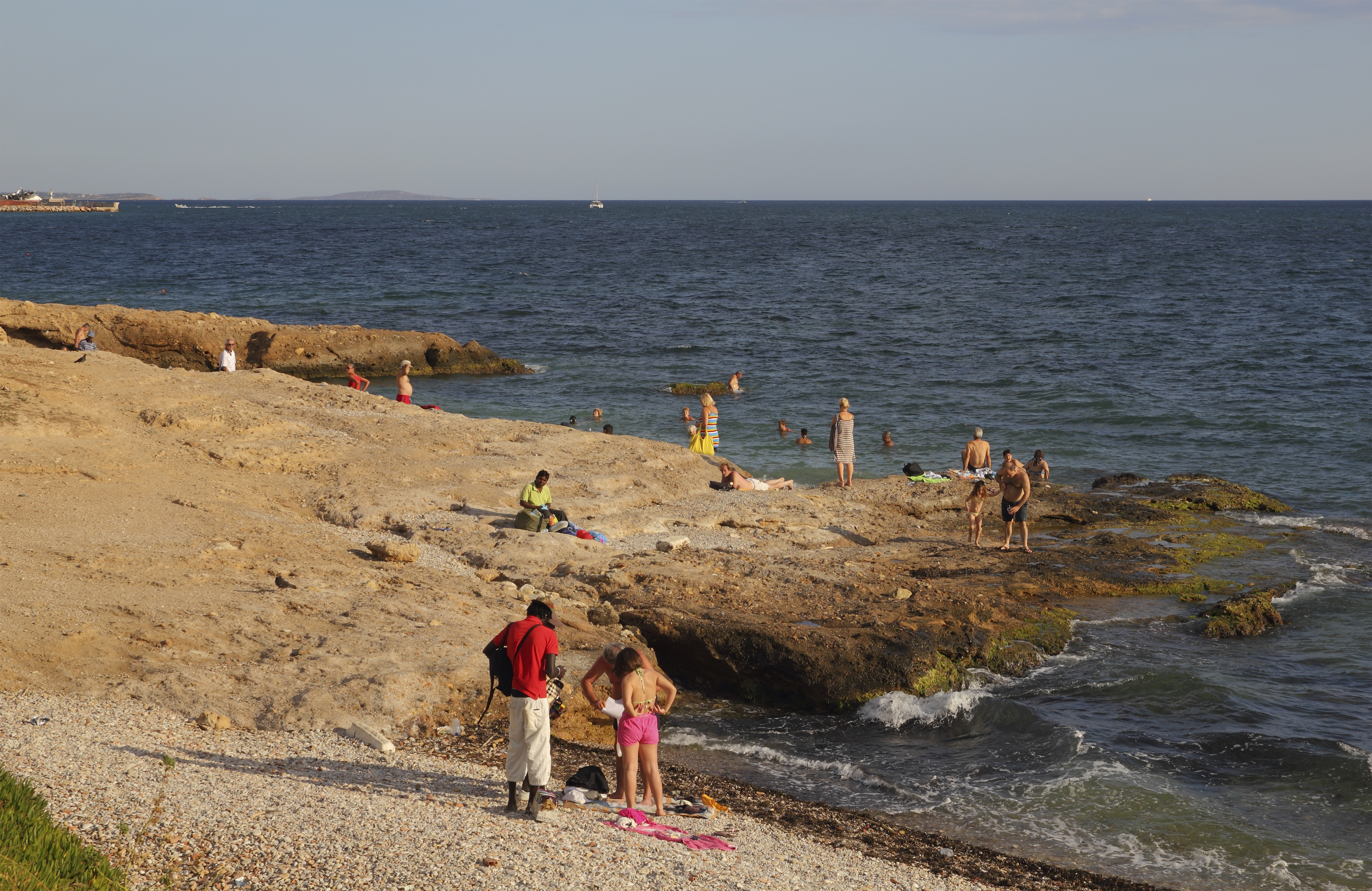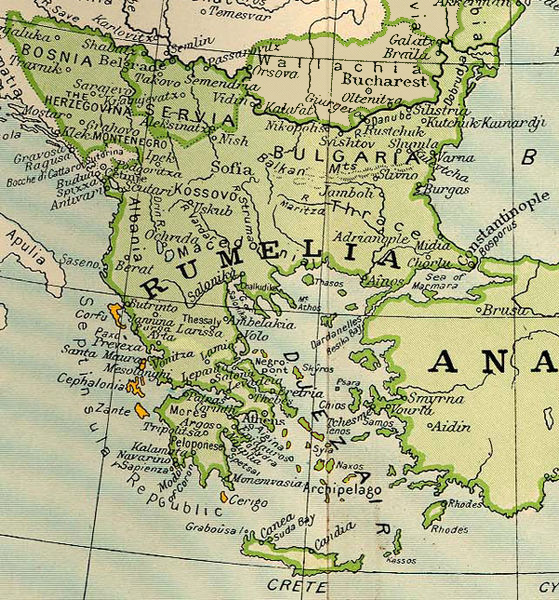|
Port Of Piraeus
The Port of Piraeus () is the chief sea port of Athens, located on the Saronic Gulf on the western coasts of the Aegean Sea, the largest port in Greece and List of busiest ports in Europe, one of the largest in Europe. The Chinese state-owned COSCO Shipping operates the port. History The Port of Piraeus served as the port of Athens since Ancient Greece, ancient times. Early Antiquity Until the 3rd millennium BC, Piraeus was a rocky island connected to the mainland by a low-lying stretch of land that was flooded with sea water most of the year. It was then that the area was increasingly silted and flooding ceased, thus permanently connecting Piraeus to Attica and forming its ports, the main port of Cantharus and the two smaller of Zea and Munichia. In 493 BC, Themistocles initiated the fortifications of Piraeus and later advised the Athenians to take advantage of its natural harbours' strategic potential. In 483 BC, the Athenian navy, Athenian fleet left the older harbour o ... [...More Info...] [...Related Items...] OR: [Wikipedia] [Google] [Baidu] |
Greece
Greece, officially the Hellenic Republic, is a country in Southeast Europe. Located on the southern tip of the Balkan peninsula, it shares land borders with Albania to the northwest, North Macedonia and Bulgaria to the north, and Turkey to the east. The Aegean Sea lies to the east of the Geography of Greece, mainland, the Ionian Sea to the west, and the Sea of Crete and the Mediterranean Sea to the south. Greece has the longest coastline on the Mediterranean Basin, spanning List of islands of Greece, thousands of islands and nine Geographic regions of Greece, traditional geographic regions. It has a population of over 10 million. Athens is the nation's capital and List of cities and towns in Greece, largest city, followed by Thessaloniki and Patras. Greece is considered the cradle of Western culture, Western civilisation and the birthplace of Athenian democracy, democracy, Western philosophy, Western literature, historiography, political science, major History of science in cl ... [...More Info...] [...Related Items...] OR: [Wikipedia] [Google] [Baidu] |
Phalerum
Phalerum or Phaleron ( ' ; ''()'', ) was a port of Ancient Athens, 5 km southwest of the Acropolis of Athens, on a bay of the Saronic Gulf. The bay is also referred to as "Bay of Phalerum" ( '').'' The area of Phalerum is now occupied by the towns Palaio Faliro, Kallithea, Moschato and Neo Faliro, all of which are part of the Athens agglomeration. Phalerum was the major port of Athens before Themistocles had the three rocky natural harbours by the promontory of Piraeus developed as alternative, from 491 BC. It was said that Menestheus set sail with his fleet to Troy from Phalerum, as did Theseus when he sailed to Crete after the death of Androgeus. Recently, archaeologists have uncovered what appear to be traces of ancient Athens’s first port before the city’s naval and shipping centre was moved to Piraeus. The site, some 350 m from the modern coastline, contained pottery, tracks from the carts that would have served the port, and makeshift fireplaces where trav ... [...More Info...] [...Related Items...] OR: [Wikipedia] [Google] [Baidu] |
Escrow
An escrow is a contractual arrangement in which a third party (the stakeholder or escrow agent) receives and disburses money or property for the primary transacting parties, with the disbursement dependent on conditions agreed to by the transacting parties. Examples include an account established by a broker for holding funds on behalf of the broker's principal or some other person until the consummation or termination of a transaction; or, a trust account held in the borrower's name to pay obligations such as property taxes and insurance premiums. The word derives from the Old French word , meaning a scrap of paper or a scroll of parchment; this indicated the deed that a third party held until a transaction was completed. Types Escrow generally refers to money held by a third party on behalf of transacting parties. It is mostly used regarding the purchase of shares of a company. It is best known in the United States in the context of the real estate industry (specifically in m ... [...More Info...] [...Related Items...] OR: [Wikipedia] [Google] [Baidu] |
COSCO Pacific
COSCO Shipping Ports Limited, stylized as COSCO SHIPPING Ports is a Hong Kong listed company and investor in ports. The company is formerly known as COSCO Pacific Limited and was an indirect subsidiary of COSCO and now part of its successor, COSCO Shipping. It is mainly engaged in container terminal operations, container manufacturing and leasing, shipping agency and freight forwarding. COSCO Pacific was a Hang Seng Index constituent (blue chip) from 2003 to 2014. COSCO Pacific also a red chip company so that it once considered as a purple chip company. History COSCO Pacific Limited is a Bermuda incorporated company and was a subsidiary of China Ocean Shipping (Group) Company (COSCO). In 1994, it became a listed company in the Stock Exchange of Hong Kong (SEHK). At that time, Hong Kong is a British colony and not yet handover back to the People's Republic of China. After the 1997 handover, Hong Kong still has a separate jurisdiction apart from the Mainland China. Since COSCO Paci ... [...More Info...] [...Related Items...] OR: [Wikipedia] [Google] [Baidu] |
Initial Public Offering
An initial public offering (IPO) or stock launch is a public offering in which shares of a company are sold to institutional investors and usually also to retail (individual) investors. An IPO is typically underwritten by one or more investment banks, who also arrange for the shares to be listed on one or more stock exchanges. Through this process, colloquially known as ''floating'', or ''going public'', a privately held company is transformed into a public company. Initial public offerings can be used to raise new equity capital for companies, to monetize the investments of private shareholders such as company founders or private equity investors, and to enable easy trading of existing holdings or future capital raising by becoming publicly traded. After the IPO, shares are traded freely in the open market at what is known as the free float. Stock exchanges stipulate a minimum free float both in absolute terms (the total value as determined by the share price multiplied ... [...More Info...] [...Related Items...] OR: [Wikipedia] [Google] [Baidu] |
China Ocean Shipping (Group) Company
China Ocean Shipping Company (COSCO) was a former shipping corporation from 1961 to 2016, owned by the State Council of China. The company merged with China Shipping Group Company to form China COSCO Shipping Corporation in January 2016. COSCO was founded in 1961 as a state-owned shipping and logistics services supplier company. COSCO headquarters is in Ocean Plaza in the Xicheng District in Beijing. It owns 1114 ships, including 365 dry bulk vessels, a container fleet with a capacity of , and a tanker fleet of 120 vessels. The fleet calls at over a thousand ports worldwide. It ranks among the largest in both number of container ships and aggregate container volume in the world. In 2012, it was among China's top 15 brands. It was the largest dry bulk carrier in China and one of the largest dry bulk shipping operators worldwide. In addition, the Group is the largest liner carrier in China. COSCO division COSCO Shipping Port Company manages the company's port operations ... [...More Info...] [...Related Items...] OR: [Wikipedia] [Google] [Baidu] |
Privatize
Privatization (rendered privatisation in British English) can mean several different things, most commonly referring to moving something from the public sector into the private sector. It is also sometimes used as a synonym for deregulation when a heavily regulated private company or industry becomes less regulated. Government functions and services may also be privatised (which may also be known as "franchising" or "out-sourcing"); in this case, private entities are tasked with the implementation of government programs or performance of government services that had previously been the purview of state-run agencies. Some examples include revenue collection, law enforcement, water supply, and prison management. Another definition is that privatization is the sale of a state-owned enterprise or municipally owned corporation to private investors; in this case shares may be traded in the public market for the first time, or for the first time since an enterprise's previous natio ... [...More Info...] [...Related Items...] OR: [Wikipedia] [Google] [Baidu] |
Greek Government-debt Crisis
Greek may refer to: Anything of, from, or related to Greece, a country in Southern Europe: *Greeks, an ethnic group *Greek language, a branch of the Indo-European language family ** Proto-Greek language, the assumed last common ancestor of all known varieties of Greek **Mycenaean Greek, most ancient attested form of the language (16th to 11th centuries BC) **Ancient Greek, forms of the language used c. 1000–330 BC **Koine Greek, common form of Greek spoken and written during Classical antiquity ** Medieval Greek or Byzantine Language, language used between the Middle Ages and the Ottoman conquest of Constantinople ** Modern Greek, varieties spoken in the modern era (from 1453 AD) *Greek alphabet, script used to write the Greek language *Greek Orthodox Church, several Churches of the Eastern Orthodox Church *Ancient Greece, the ancient civilization before the end of Antiquity * Old Greek, the language as spoken from Late Antiquity to around 1500 AD *Greek mythology, a body of myth ... [...More Info...] [...Related Items...] OR: [Wikipedia] [Google] [Baidu] |
Ottoman Greece
The vast majority of the territory of present-day Greece was at some point incorporated within the Ottoman Empire. The period of Ottoman rule in Greece, lasting from the mid-15th century until the successful Greek War of Independence broke out in 1821 and the First Hellenic Republic was proclaimed in 1822, is known in Greece as Turkocracy (). Some regions, like the Ionian islands and various temporary Republic of Venice, Venetian possessions of the Stato da Mar, were not incorporated in the Ottoman Empire. The Mani Peninsula in the Peloponnese was not fully integrated into the Ottoman Empire, but was under Ottoman suzerainty. The Eastern Roman Empire, which ruled most of the Greek-speaking world for over 1100 years, had been fatally weakened since the Fourth Crusade of 1204. Having defeated the Serbs, the Ottomans fall of Constantinople, captured Constantinople in 1453 and soon advanced southwards capturing Athens in 1456 and the Peloponnese in 1460. By the early 16th century, a ... [...More Info...] [...Related Items...] OR: [Wikipedia] [Google] [Baidu] |
Byzantine Empire
The Byzantine Empire, also known as the Eastern Roman Empire, was the continuation of the Roman Empire centred on Constantinople during late antiquity and the Middle Ages. Having survived History of the Roman Empire, the events that caused the fall of the Western Roman Empire in the 5th centuryAD, it endured until the fall of Constantinople to the Ottoman Empire in 1453. The term 'Byzantine Empire' was coined only after its demise; its citizens used the term 'Roman Empire' and called themselves 'Romans'. During the early centuries of the Roman Empire, the western provinces were Romanization (cultural), Latinised, but the eastern parts kept their Hellenistic culture. Constantine the Great, Constantine I () legalised Christianity and moved the capital to Constantinople. Theodosius I, Theodosius I () made Christianity the state religion and Greek gradually replaced Latin for official use. The empire adopted a defensive strategy and, throughout its remaining history, expe ... [...More Info...] [...Related Items...] OR: [Wikipedia] [Google] [Baidu] |
Themistoclean Wall
The Themistoclean Wall (), named after the Athenian statesman Themistocles, was built in Athens, Greece during the 5th century BC as a result of the Persian Wars and in the hopes of defending against further invasion. History The Persian Wars were waged by the Achaemenid Empire of Persia in an attempt to conquer the Greeks. King Darius I was unsuccessful in his invasion attempt and was followed by his son, Xerxes I, who led the Second Persian Wars which lasted from 480 to 479 BC. Xerxes saw more victories than his father, successfully burning down Athens. Following the Persian Wars the Greek city states were left in disarray. Many buildings, statues, and fortifications of the Greek city states were destroyed. The people of Athens were worried by a return of the Persians, and Themistocles advocated rebuilding the walls before anything else so they decided to act upon this plan. This project was opposed by the Spartans and their Peloponnesian allies alarmed by the increasing powe ... [...More Info...] [...Related Items...] OR: [Wikipedia] [Google] [Baidu] |





